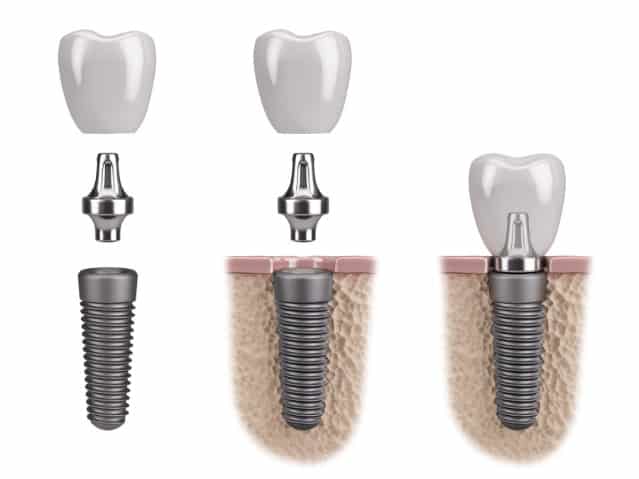Tooth loss is very common and affects an estimated 178 million Americans. Though it can potentially have a devastating impact on your oral health, self-confidence, and overall well-being, it certainly doesn’t have to. Today, we have outstanding replacement options like dental implants that look and feel so natural, you may forget you ever lost teeth to begin with. And while dental implants are a great option for most people, it’s still quite common to wonder if you’re a good candidate or not. Keep reading below to learn what a dentist will look for before making a recommendation and what an implant consultation will include.
Are You a Good Candidate For Dental Implants?
Regardless of how many teeth you’re missing, dental implants can be customized to fit your needs. Here are some of the factors that would make you a good candidate for the procedure:
- Good jawbone health – The jawbone supports both natural teeth and implants. However, once the teeth are lost, the bone that once surrounded the roots begins to deteriorate. A dentist will take detailed images of your teeth and jaws to evaluate your bone density. If you’ve experienced significant bone loss, a procedure called a bone graft can often be used to strengthen the jaw and enable it to support an implant once again.
- Good gum health – Implants can’t get cavities, but they can develop problems if the gum tissue around them isn’t clean and healthy. If you have gum disease, a dentist will likely recommend treatment before moving forward with implants.
- Non-smoker – The success rate for implants is over 95% in non-smokers, but it drops to around 85% in smokers.
The Initial Dental Implant Consultation
Each dentist does things a little differently, but an implant consultation generally starts with a thorough discussion of your goals and a review of your medical and dental history. Then they’ll examine your teeth and gums and take images that show them your upper and lower jawbone.
With that information, they’ll review their recommendations and possibly give you more than one treatment option (such as a traditional bridge versus a single dental implant). To help you make the best decision, they’ll review the pros and cons of each choice and answer any questions you may have.
Having a consultation is always helpful because you’ll get detailed information about what your treatment plan would look like. Once you know the specifics, you’ll be in a better position to make the right choice for your oral health.
About the Author
Dr. Drew Addy is an award-winning general, restorative and cosmetic dentist and a graduate of the University of Southern California. When his patients experience tooth loss, he works with them closely to understand their needs and goals before recommending the best treatment plan. If you’d like to know more about dental implants or have any questions, he can be reached via his website.


